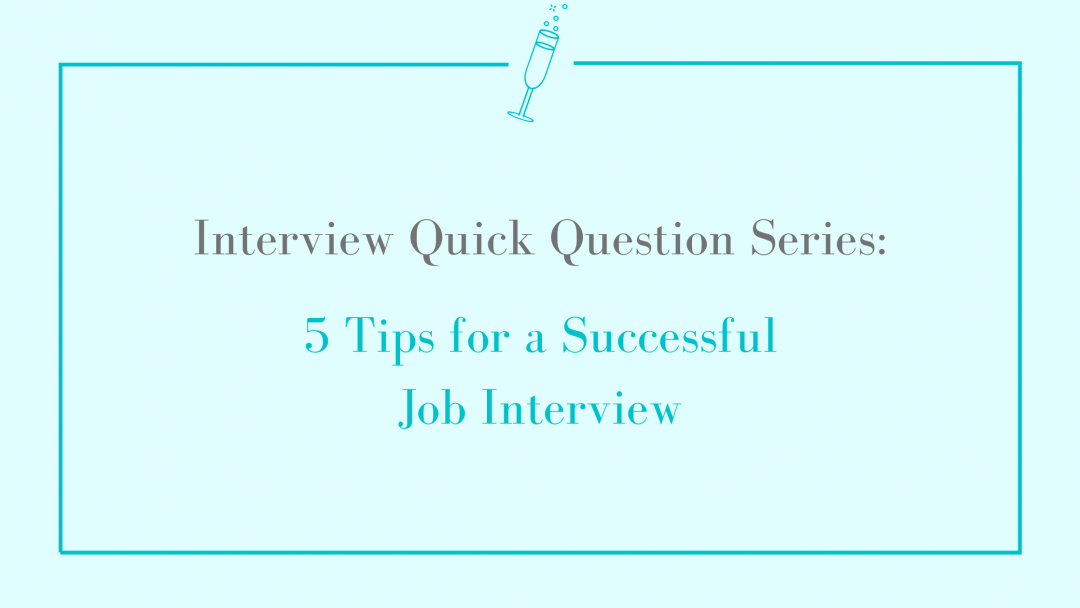
Introducing the “Quick Questions” Series with 5 Interview Tips
I’ve been very fortunate to have had the opportunity to participate in multiple interview processes throughout the past year. I can tell you that being on the interviewer’s side has significantly changed my perspective on how I should answer the questions asked. That’s why I’m going to start my “Quick Questions” series where I’ll work through some of the most popular questions and how you should answer them.
For today though, I want to give you a few quick tips to help set you up for success in your interviews.
Tailor Your Resume
I’ll admit it, I’m a HUGE resume snob. It probably stems from the fact that resume faux pas were drilled into my head in business school. At some point we’ll dig deeper into what these are, but for now we’re going to focus on the importance of tailoring your resume to each job you apply for.
You should only include relevant skills and experiences that fit the position you’re applying for. For example, if you’re applying for a finance job, there’s no reason to list that you were a barista (unless that’s your only job experience (if it is, you’d better know how to spin it!)). When you’re submitting your application, make sure you look through the job description closely and identify any skills you have that match it on the version of the resume you submit.
You have probably been told this before but your resume should only be 1-2 pages in length. Any more than that is excessive and means that you likely didn’t edit it for the position. No one wants to read 4 pages of information and it’s very unlikely that they’re going to remember anything from it.
Dress For Success
I’m sure you’ve heard the phrase “Dress for the job you want” before. This is something that I learned is super important when interviewing. When I was first interviewing for roles, I was under the impression that business professional was the rule for every interview. After working at a casual company, I’ve realized that that is not always the case. I think it’s important to evaluate the type of company you’re interviewing at. My rule of thumb is to dress like you would to go to work there, but dress it up a notch.
At my current job, I generally wear jeans and a t-shirt to work. For my in-person interview I wore black jeans, a trendy blouse, and cute flats. When I interviewed for a government accounting job, I wore a full 3 piece suit and heels. Something I like to do is wear one thing that’s going to be memorable, like a piece of cute jewelry or fun shoes (but I would only recommend that if you’re interviewing at someplace casual or trendy).
Practice Practice Practice
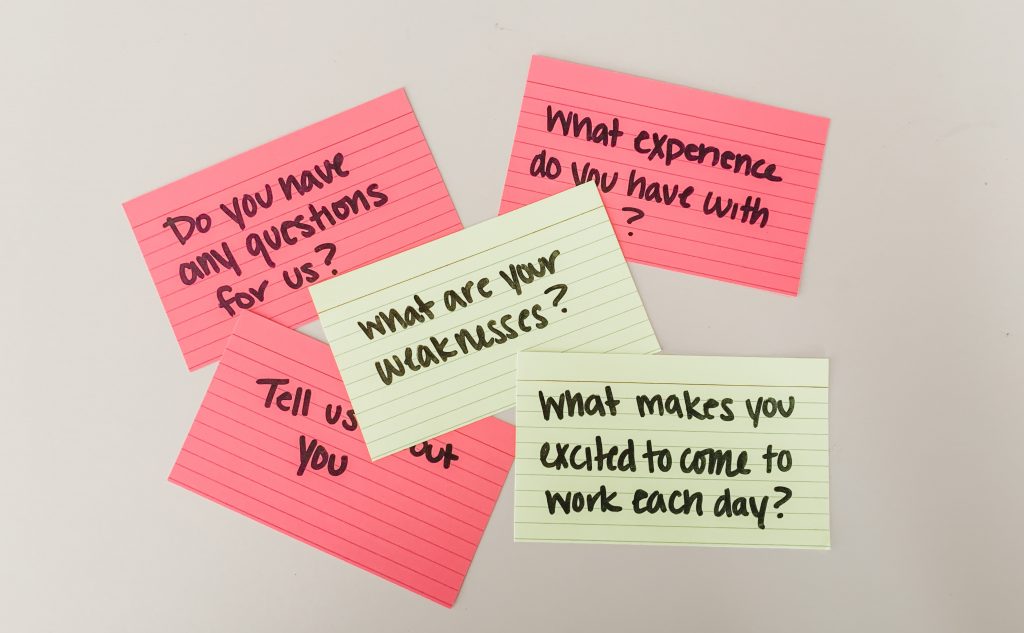
The good news about interviews it that they all ask similar if not the same questions. What that means is you should search some of the most popular interview questions and think about your answers in advance. If you can have someone do a mock-interview with you, it will put you in a much better position.
Here’s my warning to you, if you choose to not answer a question it’s going to be a huge mark against you. There was someone I interviewed who’s response to one of our questions was “Wow that’s a tough question. I don’t really know.” That was it. If you are really thrown a curve-ball, take a moment to think and give some sort of answer. If it isn’t a hard question and you aren’t able to come up with an answer relatively quickly, it may be perceived that you didn’t care enough to practice or prepare.
Come Prepared
On that note, be ready to ask questions. Every interview I’ve ever done has ended with “Do you have any questions for us?”. If your response is “no”, then I wouldn’t get my hopes up about getting a second interview or an offer. Asking questions shows that you did your research on the company, want the position, and also highlights what is important to you.
Some key things you can ask about is the company’s culture, what excites the interviewers about coming to work each day, the type of person that they think would fit this role, and the daily expectations of the role. If you have 2-3 questions prepared, you’re going to be miles ahead of someone who doesn’t.
Make sure you bring multiple print outs of your resume. It’s likely that the person interviewing you will have them already, but it shows that you are prepared.
Leave a Lasting Impression
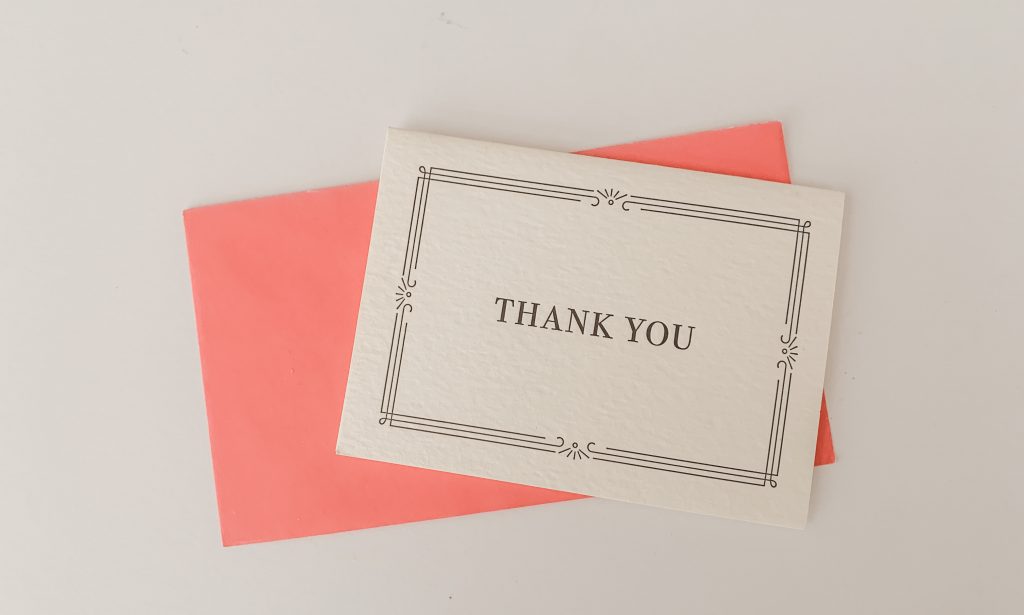
I love a candidate that takes notes during the interview. Since I am typically interviewing people for a detail-oriented role, it gives me the impression that the person has that trait if they are taking notes. It’s also helpful for you later if you get brought back for another interview or are extended an offer.
Send a thank you note! My now boss sent everyone involved with her interviews a thank you note the next day. I was only brought into the room for the last 10 minutes, but she even wrote one for me. At the time, I was still an entry level employee. The fact that she sent me a note really showed the type of leader she was. I think at that point the decision was already going to be to hire her, but if there were any reservations I’m sure that the cards would have eliminated them.

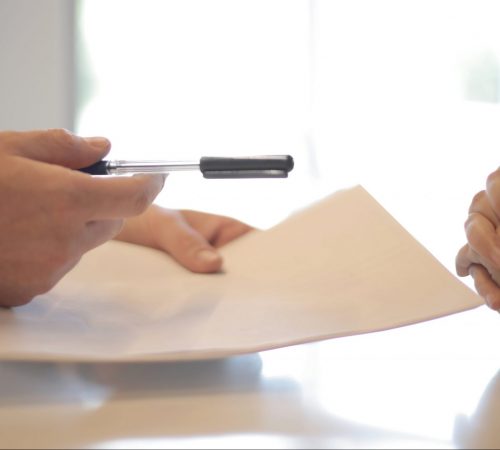
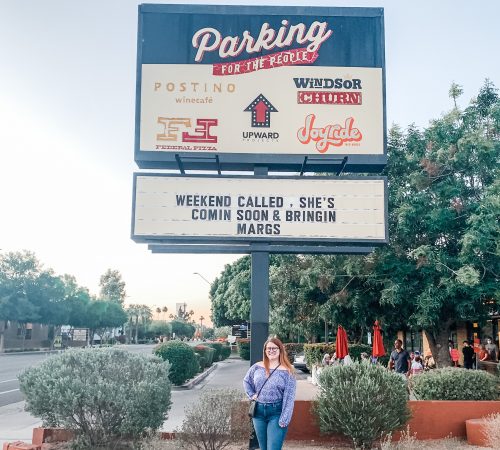
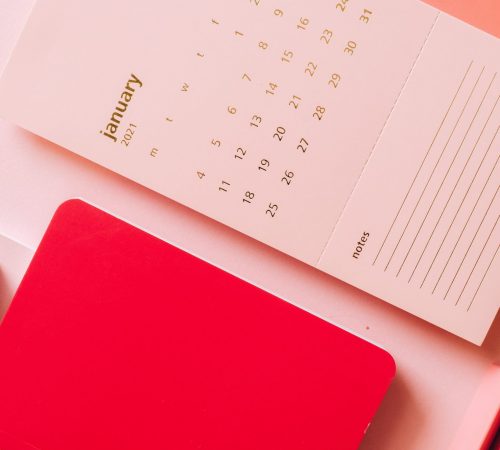

No Comments